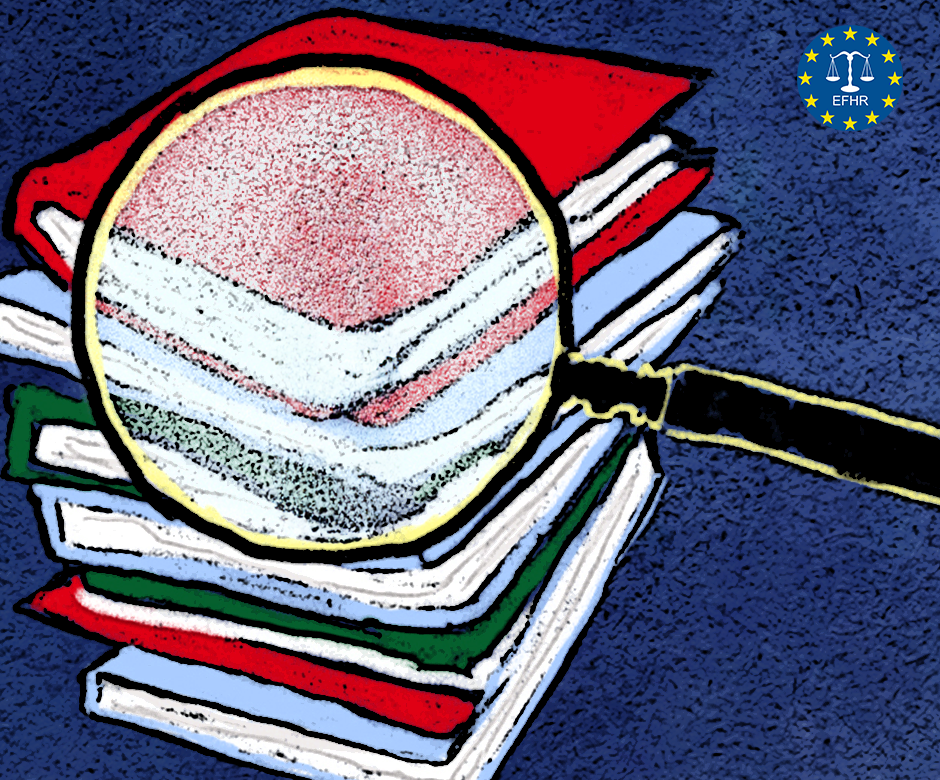- 2018/01/25
Ethnic minorities are studying from poor quality learning materials

Republic of Lithuania Law on Education states that education is an activity intended to provide an individual with a basis for a worthy independent life and to assist the individual in the continuous cultivation of abilities. Every parent hopes that their children will acquire the necessary amount of knowledge and that the process of learning will be conducted using reliable scientific sources.
In order to ensure that the children obtain the necessary knowledge, teachers are applying various teaching techniques and methods. The most common are exercise books, they are of great convenience for both, teachers and students. The reasons behind it is that the students do not have to carry them to and from the school, they are able to complete the exercises at home while enjoying an abundance of exercises available to them. However, on the order of the Minister of Education and Science of the Republic of Lithuania, primary and secondary school curricula for years 2017-2018 and 2018-2019, case number V-442, states that the exercise books are not compulsory for use as a source of learning. Therefore, teachers have to come to a decision whether or not they want to include exercise books in their classes, what is more, they are also responsible for choosing a particular exercise book if they decide that they want to include in their programme. Parents are required to purchase exercise books using their own funds.
Ethnic minority schools are utilising exercise books as a way of teaching their students their mother tongue. While making use of them, teachers have observed that, the exercise books for Polish language have a substantial amount of translation inaccuracies, a number of them completely alter the goal of the task which then becomes unclear for the student. What should parents do if they have bought an exercise book that is unsatisfactory?
The attorney of the European Human Rights Foundation discusses this situation.
Republic of Lithuania Law on Consumer Protection states that the consumer has the right to purchase a product or service that is safe and suitable for use. In Lithuania, consumer right protection is guaranteed by Consumer Rights Protection Authority of the Ministry of Justice which is responsible for the safety, quality and markings of the non-food products and services. If a consumer believes that a merchant or provider of services has violated his rights, he has a right to: contact a merchant or provider of services, the entity of out-of-court consumer dispute resolution subject or the court. Firstly, a person who believes that a merchant or provider of services has violated his rights must contact the merchant or provider of services in writing and state his request. The consumer must contact the merchant or provider of services not later than within three months from the day the consumer became aware or should have been aware of the violation of his rights. The merchant or provider of services must review the request free of charge, if the merchant of provider of services does not agree with the consumer’s requests, it must, within 14 days, provide the consumer a detailed response justified with the use of relevant documents. The copies of these documents must be attached to the merchant’s or provider of service’s response to the consumer. Consumer complaints are handled by merchants and providers of services are free of charge. If the merchant of provider of services does not satisfy the request of the consumer or does so partially, the merchant’s or provider of service’s response must contain an instruction of the appeal process. In this case, a person may contact Consumer Rights Protection Authority or the court.
According to the Civil Code of the Republic of Lithuania, article 6.363, a consumer to whom a faulty item has been sold to has the right to: demand the merchant to eliminate the defect (to repair an item) free of charge, demand the merchant to replace a faulty item free of charge, demand the merchant to reduce the price accordingly or to terminate the contract and demand a refund.
Parents who have purchased poor quality exercise books may contact the merchant with a request for a free replacement of exercise books or demand a refund. According to EFHR, the average price of exercise books varies from 3€ to 10€. Parents who have purchased poor quality exercise books are entitled to reimbursement for losses incurred due to faulty products. The costs for removing defects are also considered to be losses if they were not eliminated by the merchant. Education Supply Centre of the Ministry of Education stated that publishing houses are responsible for publishing poor quality exercise books.
EFHR provides free consultation on reimbursement of poor quality exercise books. Please feel free to contact us by phone (+370 691 50 822) or e-mail (info@efhr.eu)



